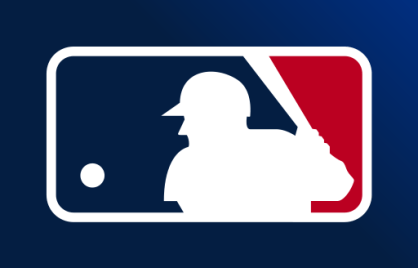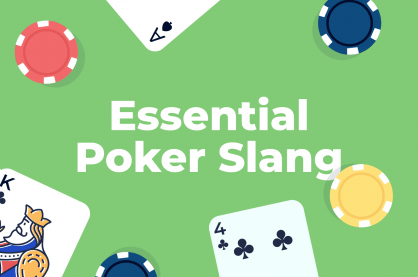The House Doesn’t Always Win – Trump’s Failed Casino Projects
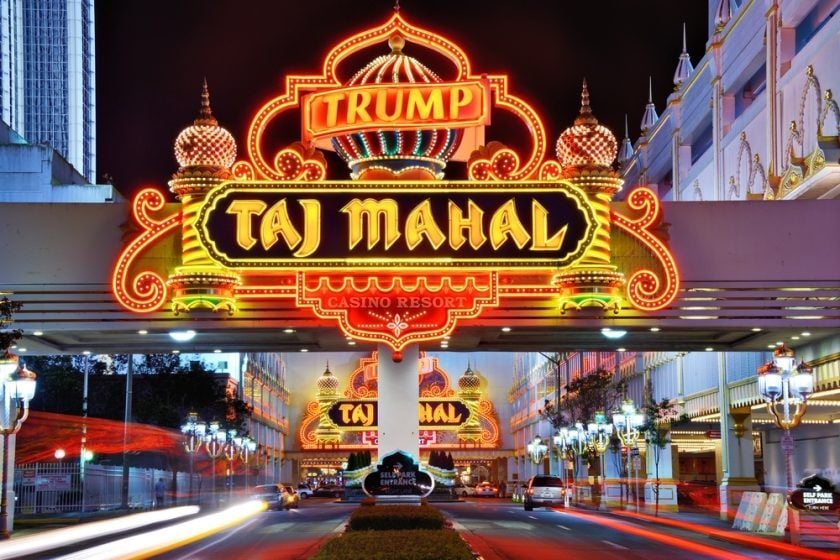
Before becoming the 45th president of the US in 2016 and now returning as President-elect for his second term in office, Donald Trump has been involved in a wide range of business ventures, from developing luxury real estate to appearing in reality TV.
While his reality TV career was a huge success, and some landmark buildings across the country bear his name, one area of Trump’s business that saw mixed results is his casino developments.
While Trump played a vital role in the history of three Atlantic City casinos and a riverboat casino in Indiana, his casino properties faced a series of bankruptcies, anti-money laundering violations, and tentative connections to organized crime.
Currently, Donald Trump owns no casinos in the US.
We’ve taken a deep dive into Trump’s casinos in the US, charting what happened with these casinos, from professional fighting events to $10 million casino games that inspired movies. So, let’s take a look at the history of Donald Trump’s casino projects.
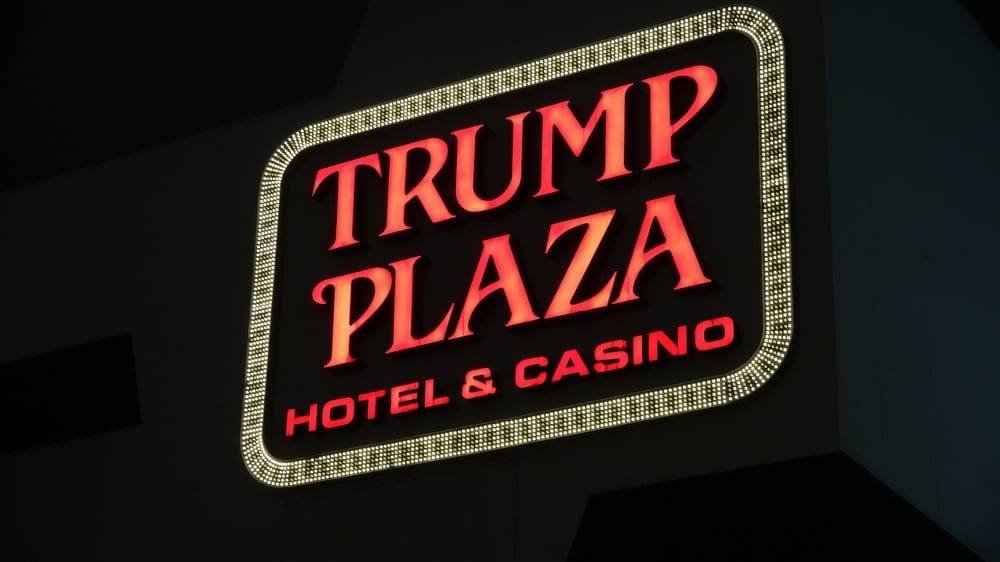
Image credit: Cheapbooks/Shutterstock
Trump Plaza Casino and Hotel
Donald Trump started his career in 1968, working at his father’s real estate business. In 1971, his father made him president of Trump Management, which Donald later renamed the Trump Organization.
In March 1982, the New Jersey Casino Control Commission granted Trump a license to build a casino in Atlantic City. Usually, the Commission would grant a license after months of deliberation, but instead, it awarded Trump the license after a two-hour hearing.
Trump teamed up with the gaming unit of Holiday Inn, Harrah’s, and the casino opened as Harrah’s at Trump Plaza in 1984. Later that same year, the name was changed to Trump Plaza to avoid confusion with Harrah’s Marina.
Early Liquidity Issues
The casinos didn’t see much early success, only collecting pre-tax profits of $144,000 in the first half of 1985. Meanwhile, a dispute between Trump and Harrah’s erupted after Trump purchased a nearly complete casino from the Hilton Hotel chain, which he named Trump’s Castle Hotel & Casino.
Harrah’s claimed this name was too close to Harrah’s at Trump Plaza and would confuse customers. The issue ended up in court, although the judicial system sided with Trump.
Trump then bought out Harrah’s from the casino in May 1986 for $70 million. Trump Plaza Casino expanded in 1989 when Trump paid $62 million to buy a neighboring casino. He also used $63 million to buy a bankrupt casino hotel and added it as a hotel annex to the existing structure.
The casino saw plenty of excitement during the late 1980s and early 90s. While it is commonly claimed it hosted WrestleMania IV and V, Trump simply sponsored these events, which were actually held at Atlantic City Boardwalk Hall.
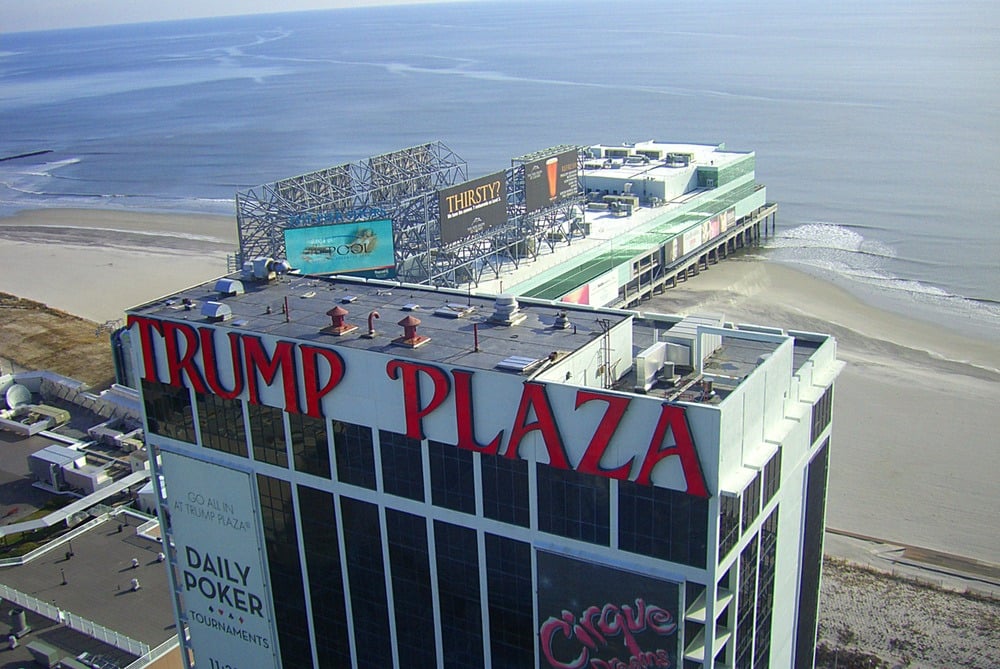
Image credit: Frank Romeo/Shutterstock
What did happen within the Trump Plaza Casino was the famous baccarat game in which Akio Kashiwagi lost $10 million. This game was later turned into the movie Casino, directed by Martin Scorsese.
The turn of the 1990s also coincided with financial struggle for the casino, in part due to Trump’s other casino, Trump Taj Mahal, opening just a mile away.
The casino almost defaulted on a 1991 payment to bondholders but avoided the issue by taking out a $25 million mortgage on the parking garage. The casino also submitted a prepackaged bankruptcy in March 1992 due to $250 million in debt.
Plans to expand the casino in 1993 were downsized as they would have required acquiring Vera Coking’s property. As a result, the $42 million expansion did not include a limousine parking lot. In 1995, Trump gave ownership of Trump Plaza Casino and Hotel to Trump Hotels & Casino Resorts.
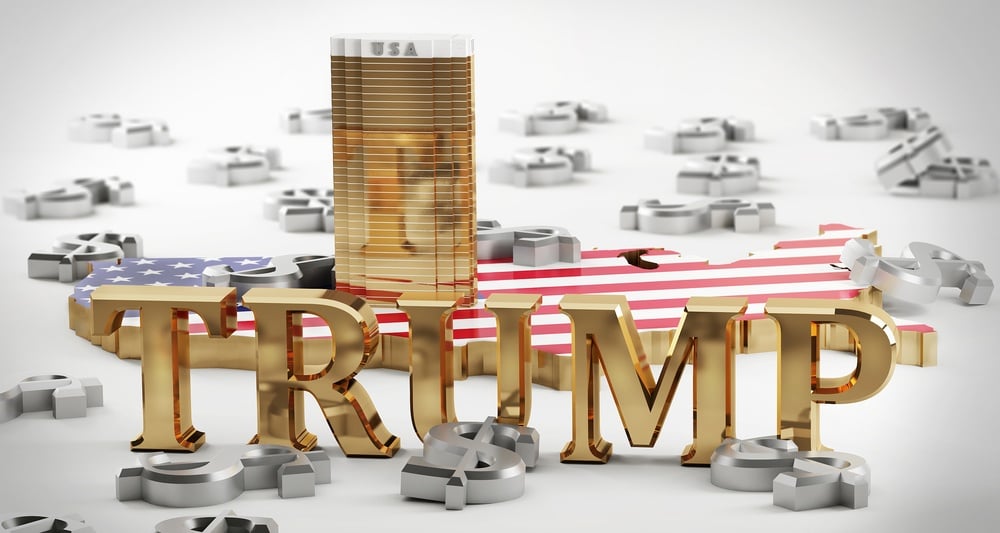
Image credit: pespo/Shutterstock
First Casino Bankruptcy
Trump Hotels & Casino Resorts filed for bankruptcy protection in 2004. As part of this deal, Trump’s role in the company was significantly reduced and it was renamed Trump Entertainment Resorts. A subsequent bankruptcy deal in 2009 saw Trump receive 10% of the company’s stock so that it could continue using his name and likeness.
In August 2014, this clause came into repute, as Trump filed a lawsuit against Trump Plaza Casino and Hotel and Trump Taj Mahal, which had fallen into such disrepair he didn’t think they were fit to bear his name anymore. It had already been reported in July that the casino intended to close in September, and on September 16, 2014, the casino shut its doors for the last time.
A lengthy debate over the demolition meant it wasn’t until February 17, 2021, that Trump Plaza Casino and Hotel became the second casino demolished by implosion in Atlantic City.
Trump’s World Fair
One of Trump’s shorter casino projects, the Atlantic City casino first opened in 1981 as Playboy under the operations of Playboy Enterprises, owned by Hugh Hefner. It was the first casino to be constructed from scratch after the legalization of these constructions in Atlantic City.
Playboy only lasted until 1984, when it was rebranded as Atlantis during a sale. The casino shut down, but the hotel continued to operate until Trump bought the building in 1989 for $63 million.
Renamed Trump Regency, the casino reopened in 1992, although under its mortgage holder, Chemical Bank. Trump purchased the casino in 995 for $60 million. The casino reopened after $48 million in investments under the name Trump’s World Fair.
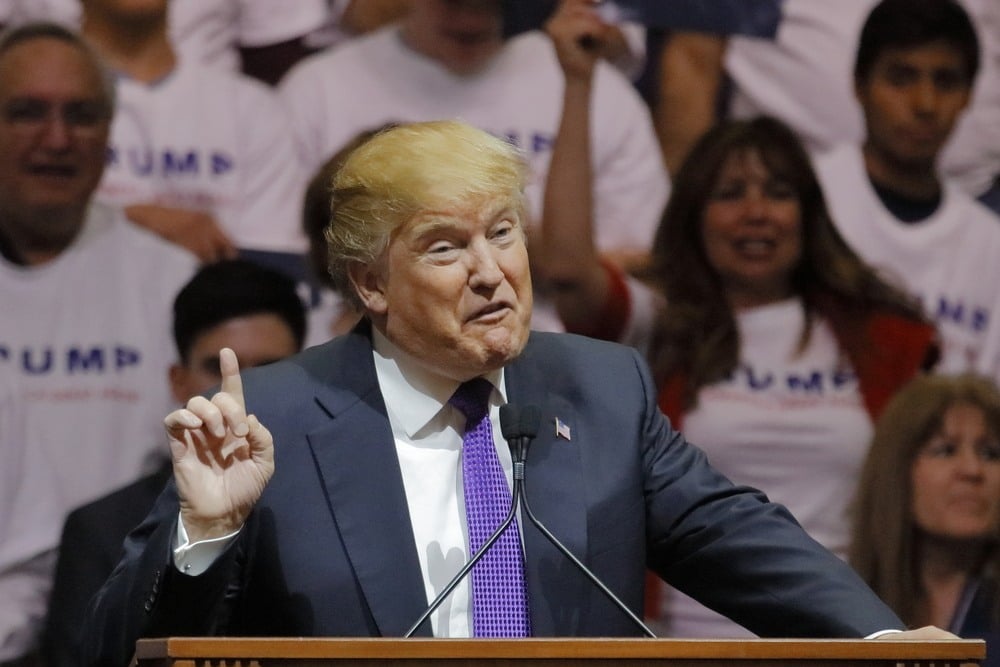
Image credit: Joseph Sohm/Shutterstock
Trump Casino in Gary, Indiana
On July 1, 1993, Indiana lawmakers signed the Indiana Riverboat Gaming Act, allowing riverboat casinos to operate in the state. Months later, Donald Trump proposed plans for a new riverboat casino in Gary, saying,
“We’re going to build something that this area, and that includes Chicago, that this area has never seen. It’s going to be first-class, it’s going to be world-class.”
Part of his pitch was a music video featuring him with celebrities while Tina Turner’s Simply the Best played in the background. These celebrities included Gary native Michael Jackson.
Two gambling licenses were available for Gary riverboat casinos, and Trump’s proposal was one of four being considered in December 1994. The Indiana Gaming Commission awarded him the license as Trump referred to his track record and finances in his pitch.
Trump Casino opened in June 1996 but was included in the bankruptcy filing of Trump Hotels & Casinos in 2004. Trump sold the casino to his rival operating the other riverboat casino in Gary, Don Barden, who rebranded it as Majestic Star II in 2005.
Trump Taj Mahal
The Trump Taj Mahal began construction in 1983 under Resorts International, which owned another casino in Atlantic City, Resorts Casino Hotel. After the head of Resorts died in 1986, the company lost direction, and his heirs sold a controlling stake to Trump for $70 million.
Trump already owned two Atlantic City Casinos, and New Jersey laws prevented anyone from owning three AC casinos. When Trump was made chairman of Resorts International, he intended to shut down Resorts Casino and make it an annex of the Trump Taj Mahal.
Trump vs Merv Griffin
The initial construction had a budget of $250 million, but that spiked up to $930 million following Trump’s takeover, which drove Resorts International near bankruptcy in early 1988. Trump proposed taking complete control of the company by purchasing all outstanding stock for $22 per share.
If he had been given full control of the company, Trump would have personally been willing to finance this transaction.
His plan was disrupted by Wheel of Fortune creator, Merv Griffin, who made a rival offer to buy the shares for $35 a share. Trump and Griffin became involved in a highly public dispute, including filing lawsuits against one another, but settled in November 1988.
Trump purchased the Trump Taj Mahal for $273 million, while Griffin bought Resorts International.
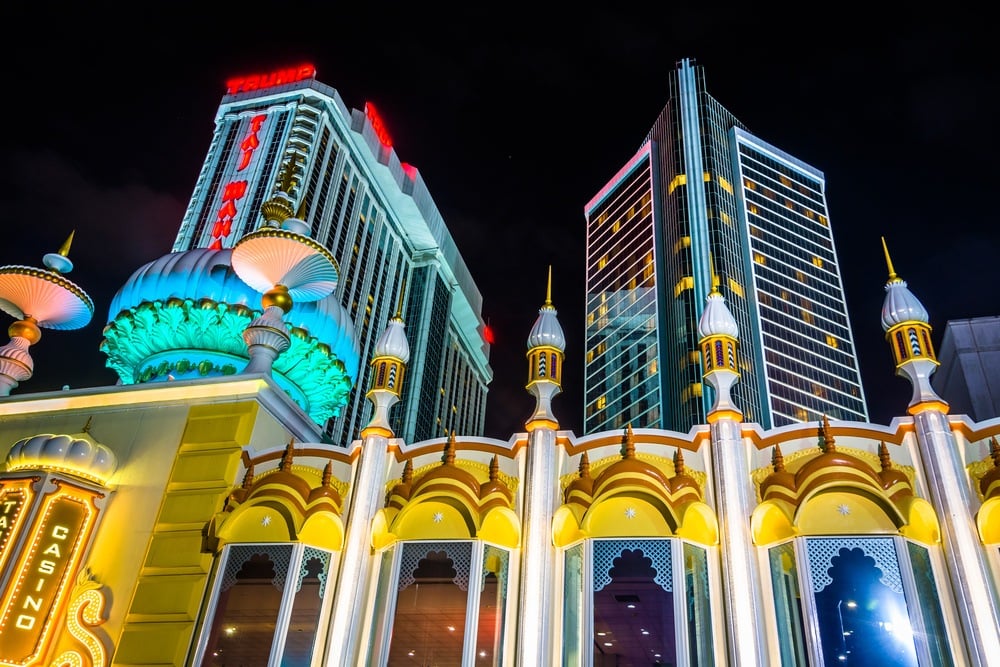
Image credit: Jon Bilous/Shutterstock
Through an additional $675 million of financing, mainly through junk bonds, the casino opened its doors on April 2, 1990, with branding as the “eighth wonder of the world.”
The Trump Taj Mahal went through a prepackaged bankruptcy shortly after in 1991. While this involved giving 50% of the business to bondholders, Trump Hotels & Casino Resorts bought the hotel in 1996 for a valuation of $890 million.
According to a 1998 settlement agreement with the IRS, the Trump Taj Mahal violated anti-money laundering rules 106 times in its first year and a half of operation and paid fines worth $447,700. At the time, it was noted that this was the largest fine ever placed on a casino for breaking the Bank Secrecy Act.
Links to Organized Crime
Federal investigations also revealed the casino as the preferred location for Russian mobsters. An employee who worked at the Trump Taj Mahal from 1990 to 1995, Danny Sau Keung Leung, was an associate of Hong Kong crime group 14K Triad.
The Trump Taj Mahal operated under its name until October 10, 2016, with plenty of action passing through the building, including the first UFC competitions organized by current owner Dana White. The casino also opened the first US casino strip club in 2013.
However, Trump Entertainment Resorts filed for bankruptcy in September 2014. The company threatened to shut down the casino if it “doesn’t get concessions from its unions,” and the casino was eventually sold to Hard Rock International in 2017.
The Casino That Never Was – Trump International Hotel Las Vegas
Las Vegas is known as the center of gambling in the US, with the Las Vegas Strip featuring some of the most iconic casinos in the world.
The location seemed like a match made in heaven for Trump’s casino business, and a casino was discussed when Trump partnered with Phil Ruffin in April 2002 on the construction of Trump Tower Las Vegas. The construction site was close to Ruffin’s own New Frontier Hotel and Casino, which shut in 2007.
However, the project was delayed several times, and ambitions and intentions were downscaled. A proposed second tower was never built during harsh economic conditions.
Despite all the difficulties, the Trump International Hotel Las Vegas stands at 64 stories and is the tallest residential building in Las Vegas. It supports luxury condos and hotel rooms.
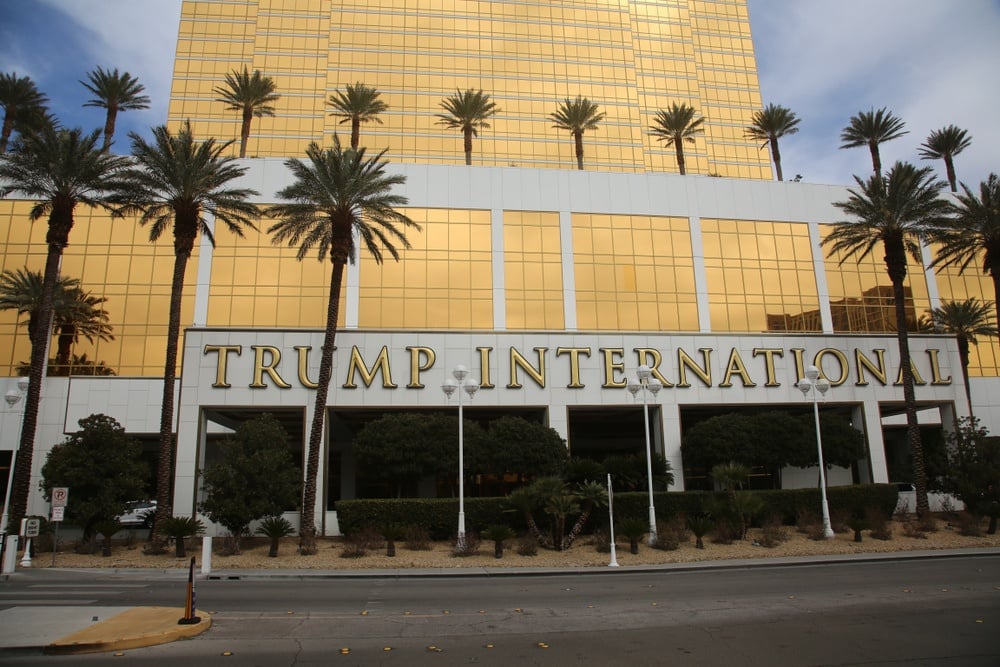
Image credit: Mikeledray/Shutterstock
However, the location never opened a casino. Eric Trump, Donald’s third child, with Ivana Trump, who used to oversee the tower’s operations, explained that the company never had an issue getting a gaming license from the Nevada Gaming Commission.
In 2013, Trump said, “We have no problem getting a gaming license, but we wanted to do something different here. We wanted a true luxury resort experience. It’s hard to have a high-quality product when you walk into ‘ding, ding, ding’ and there are people walking around in Hawaiian shirts with big plastic drink mugs.”
Title Image credit: Sean Pavone/Shutterstock

